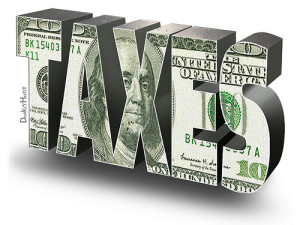New legislation is working its way through congress to require e-commerce retailers and mail order telephone order business to collect local sales taxes on transactions. e-commerce web sites and mail order telephone order businesses that conduct over $1 million gross sales and sell products and services in states where they don’t maintain brick and mortar presences would be required to collect and pay local and state taxes in those states. Targeting remote retailers that engage in interstate commerce the most obvious being mail order and telephone order as well as e-commerce shopping cart sites.
Online shopping cart and e-commerce payment gateway providers as well as merchant account service providers will likely integrate the new tax collection policies into online checkout and electronic payment gateway software. In addition to PCI DSS Compliance e-commerce and MOTO retailers would have a new compliance hurdle. Ben Goretsky explains “website hosting companies that provide e-commerce services like Network Solutions, and Magento (owned by eBay) face the difficult task of incorporating tax collection solutions due to the difficulty of sales tax rates across the United States. If I’m an e-commerce merchant dealing with clients from 50 states and each state has an average of 10 different tax zones, I have to deal with 500 different tax zones.”. Automated tax collection specialist Avalara says that number is very conservative stating that “state, local and additional tax obligations within those jurisdictions amounts to over 11,000 tax zones within the United States. Depending on the location of the customer and the physical location(s) that fulfills the order(s), other taxes could be owed as well. Tax collection and remittance is an issue as updates to tax rules and boundaries are often based on different payment schedules and the number of transactions processed.
Some argue that e-commerce sites would be hindered by new taxes. Like the debit card price capping imposition of the Durbin Amendment to the Dodd-Frank Act of 2010, the MFA would represent another poorly designed intrusion into the industry, Goretsky added. “We’re almost at a point where we’ve reached our brink,” he said. “This might drive businesses over the edge.” For better or worse, brick and mortar businesses are angry because e-commerce sites selling the same products can conduct a transaction cheaper due to tax avoidance and these taxes are gaining proponents. They argue that e-commerce undercuts and provides unfair competition, the truth is that they have the option as well. Is this a tax that is absolutely necessary to continue or just another cash grab by bureaucrats?
